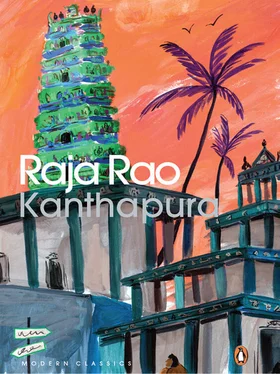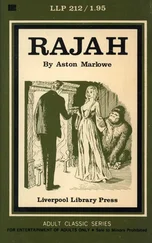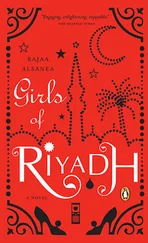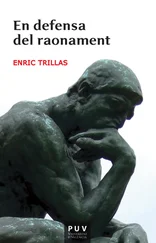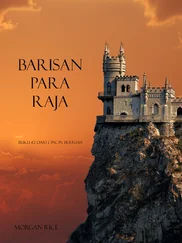Raja Rao - Kanthapura
Здесь есть возможность читать онлайн «Raja Rao - Kanthapura» весь текст электронной книги совершенно бесплатно (целиком полную версию без сокращений). В некоторых случаях можно слушать аудио, скачать через торрент в формате fb2 и присутствует краткое содержание. Год выпуска: 2014, Издательство: Penguin, Жанр: Классическая проза, на английском языке. Описание произведения, (предисловие) а так же отзывы посетителей доступны на портале библиотеки ЛибКат.
- Название:Kanthapura
- Автор:
- Издательство:Penguin
- Жанр:
- Год:2014
- ISBN:нет данных
- Рейтинг книги:3 / 5. Голосов: 1
-
Избранное:Добавить в избранное
- Отзывы:
-
Ваша оценка:
- 60
- 1
- 2
- 3
- 4
- 5
Kanthapura: краткое содержание, описание и аннотация
Предлагаем к чтению аннотацию, описание, краткое содержание или предисловие (зависит от того, что написал сам автор книги «Kanthapura»). Если вы не нашли необходимую информацию о книге — напишите в комментариях, мы постараемся отыскать её.
Kanthapura — читать онлайн бесплатно полную книгу (весь текст) целиком
Ниже представлен текст книги, разбитый по страницам. Система сохранения места последней прочитанной страницы, позволяет с удобством читать онлайн бесплатно книгу «Kanthapura», без необходимости каждый раз заново искать на чём Вы остановились. Поставьте закладку, и сможете в любой момент перейти на страницу, на которой закончили чтение.
Интервал:
Закладка:
Thus it deliberated, the Congress panchayat, till the cattle came home, and when we had lit the lamps and had given a cold meal to the children, we took our baths and went to the temple, and there was Seenu in the sanctum and he would tell us nothing, and when he went up the promontory and blew the conch, people came — men, women, children — and the Pariahs and the Weavers and the Potters all seemed to feel they were of one caste, one breath. Then Moorthy came himself, straight as an aloe, strong and calm, and we say he looks as though something is passing through him, and when the camphor is lit and the flowers offered, he stands up and says, ‘Brothers and sisters, the call is come, and men, women and children will have to begin the Don’t-touch-the-Government campaign.’—’But how is that to be done, Moorthappa?’ asks Pariah Rachanna, and Moorthy, uplifted and sure, speaks in answer, ‘That’s what I am going to explain, brother Rachanna,’ and he talks of the taxes that are not to be paid, ‘even if the Government attaches the lands,’ and of the toddy booths that are to be picketed, ‘for toddy trees are Government trees, and toddy booths are there to exploit the poor and the unhappy,’ and he continues, his voice rising higher, ‘And we shall establish a parallel government, and it is this government that will rule and not that, and the first act of our government is to appoint Rangè Gowda patel again,’ and we feel our throats warm, and we look at Rangè Gowda waving away his hand saying, ‘Oh, that’s nothing, nothing!’ but Moorthy continues, ‘For the Congress is the people and the patel is the people’s man and Rangè Gowda is our man, and if the new patel comes and says, “Give me the revenue dues,” you will say, “I do not know you — you are not our man and we will offer you neither seat nor water,” but never be harsh to them nor wicked, and above all,’ he said, his voice becoming graver, ‘remember each one of you is responsible for the harm done by another, and the first time violence is done against the police or those that are not with us, we shall stop the movement and wait for six months and more in penance and in prayer that our sins may be purified. Brothers and sisters, remember we are not out to fight the white man or the white man’s slaves, the police and the revenue officials, but against the demoniac corruption that has entered their hearts, and the purer we are the greater will be our victory, for the victory we seek is the victory of the heart. Send out love where there is hatred, and a smile against brute force like unto the waters of the Himavathy that spread over boulder and sand and crematorium earth. Brothers, remember, too, I am but a pebble among the pebbles of the river, and when the floods come, rock by rock may lie buried under, and yet there are some that stand out pointed and dry, and it is they that give you a hold for your slippery, seeking feet. The police will take away one after another among us, and yet sometimes they may leave the leaders out for fear of disorder and desperation. But my time too will come. And when it comes, brothers and sisters, I ask of you, be not awed by the circumstances, but rather follow on and on, follow the one who follows me, for he is your chief, and the Congress has made him your chief. For who, sisters, but the first daughter milks the cow when the mother is ill? Obey your chief and love your enemy, that is all I ask of you.’
‘And remember always, the path we follow is the path of the spirit, and with truth and non-violence and love shall we add to the harmony of the world. For, brothers, we are not soldiers at arms, say I; we seek to be soldier saints.’ And just then Rangamma, who sat by the central pillar, unknowingly began to ring the gong, as though the curtain had fallen and the goddess beheld, and tears came to our eyes, and even our men felt there was something in the air, and they too looked unaware, and there was not a cough nor a sneeze but only the eyelashes quivered and closed, and Moorthy, in-lit and bright, says softly, ‘You are all with us?’ and we cry out, ‘All! All!’ and, ‘You shall harm no one?’—’None! None!’—’You shall go to the end fearlessly?’—’All! All!’—’And there shall be neither Brahmin nor Pariah?’ and the Pariahs shout out, ‘Mahatma Gandhi ki jai!’ and an uncontrollable emotion takes hold of us all, and Moorthy says, ‘The panchayat has decided that it shall be on Friday the seventeenth that we shall begin the fight,’ and Pandit Venkateshia says, ‘Few days could be more auspicious,’ and we say, ‘So only three days more,’ and Moorthy says, ‘Till then, pray, purify yourselves and pray,’ and we all cry out, ‘Narayan! Narayan!’ And Horn Nanjappa plays the tune of blessings and the gongs ring and the drums beat, and as the last carts are creaking round the street, music floats out of the temple, and we clap our hands and sing and our eyes are filled with tears. Why, sister, for no Harikatha have such tears flowed down our cheeks.
Two days later, our sari-fringes tied tight to our waists, our jewels hid deep beneath the earth, with men on the right and children beside us, with drum and horn and trumpet and a cart before us all adorned with lotuses and champaks and mango twigs, in which are seated Moorthy and Rangamma and Rangè Gowda and even Pariah Rachanna, we march on and on, and when we come to the village gate Seenu sounds the conch from the top of the promontory, and Vasudev, with his twenty-three Pariahs from the Skeffington Coffee Estate, breaks a coconut before us, and when the camphor is rising before the god, we all bow down in trembling prayer, and when the conch blows again we rise, and with the horn shouting and shining over the ripe valley, we turn Bhatta’s empty house and we hurry down to Boranna’s toddy grove.
We were a hundred and thirty-nine in all, and we marched out to Boranna’s toddy grove.
And men came from Tippur and Subbur and Kanthur, kumkum on their foreheads and flowers in their hair, to see us pass by, and chrysanthemums fell on us, and rice and Bengal gram, and thus we marched out, a hundred and thirty-nine in all, to Boranna’s toddy grove, our hearts round and ripe like an April pomegranate. And Puttanna made a song, and we beat our feet and we sang,
At least a toddy-pot sister,
At least a toddy-leaf, sister,
We’ll go to Boranna’s toddy grove,
We’ll go to Boranna’s toddy growth,
And procession back at least a toddy-leaf, sister,
and we marched on to Boranna’s toddy grove.
And when we were hardly at the main road corner, we saw, beyond the mango grove, the red horse of the police inspector, and our hands began to shiver, and we held our breath beneath our breasts, and we said not a word to one another, and then when Moorthy had seen it too, he got down out of the cart, and Rangè Gowda followed him and Rangamma and Pariah Rachanna, and the cart stopped and we crossed beside it with Moorthy before us, and as we neared the toddy grove we began to see by the lantana fence policeman after policeman, their lathis tight in their hands, and the police inspector going among them and bending down and whispering to this one and that, and the horse wagging its tail and brushing away the summer flies.
And when we were by the Tippur stream bridge, the police inspector comes towards us and says, ‘You are forbidden to march to the toddy grove,’ and Moorthy smiles back and says he knows that but he thanks him all the same for saying so, but that he is following the instructions of the Congress and he would follow unto death if need be. And the police inspector says, ‘I warn you for a third time, and I say that what you do is against law, and the Government is ready to use all the force it possesses to put you down,’ and Moorthy says again, ‘Thank you,’ and he moves on; and just as we are near the toddy grove, the morning carts of Santur turn round the Kenchamma hill corner, and when they see us and the crowd behind us, they stop and come down to see what is all this procession and police about, and we say, ‘Well, there will be some more people with us.’ We begin to count our beads and say Ram-Ram, and the nearer we approach the stiffer become the policemen, and as Moorthy and Rangè Gowda try to push open the gate of the grove, the police stand before them and push them back, and Pariah Rachanna cries out, ‘Say Mahatma Gandhi ki jai!’ and we all cry out too, ‘Mahatma Gandhi ki jai!’ and we say we too shall enter the toddy grove.
Читать дальшеИнтервал:
Закладка:
Похожие книги на «Kanthapura»
Представляем Вашему вниманию похожие книги на «Kanthapura» списком для выбора. Мы отобрали схожую по названию и смыслу литературу в надежде предоставить читателям больше вариантов отыскать новые, интересные, ещё непрочитанные произведения.
Обсуждение, отзывы о книге «Kanthapura» и просто собственные мнения читателей. Оставьте ваши комментарии, напишите, что Вы думаете о произведении, его смысле или главных героях. Укажите что конкретно понравилось, а что нет, и почему Вы так считаете.
